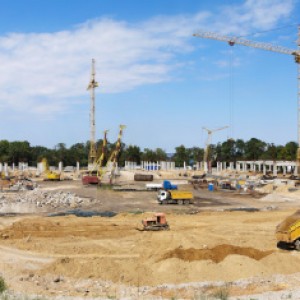Federal Scope of Work Construction Changes
Construction scope of work changes is commonplace on any federal construction project. As a general contractor, the “changes clause” allows the government or  owner to make changes to the scope of work (SOW) after the contract performance period starts. Having a thorough understanding of the the contract terms and conditions can make a big difference if the agency requires you to perform a scope change.
owner to make changes to the scope of work (SOW) after the contract performance period starts. Having a thorough understanding of the the contract terms and conditions can make a big difference if the agency requires you to perform a scope change.
Construction scope of work changes are typically for “extras” that you ask for increasing the scope of work. For federal government contracts, these statement of work changes are often driven by the agency’s request.
Immediately after realizing that your field of work has changed, you should always try to negotiate the terms up front even the changes clause allows for unilateral changes by the contracting officer.
What Constitutes A Scope of Work Construction Change?
In federal government projects, scope of work construction changes can come from various situations. These include:
- Differing site conditions;
- Delays;
- Defects; or
- Additional work.
Construction Scope of Work Changes and Notice Requirements
A well-drafted “changes clause” to any construction statement of work changes in a subcontract requires that the prime is notified before the subcontractor engaging in changes. This notice should be done immediately and in writing. This also applies to prime contractors working on federal projects.
Is there a requirement for construction scope of work changes to be in writing? Generally, subcontracts contain this element. However, the parties’ conduct may waive this requirement. When disputes arise, meeting the evidentiary standard can be more difficult. As for federal construction contracts, the CO may unilaterally change the scope of work for construction projects if there is not an existing agreement as to pricing.
When giving notice of the new change to a prime or owner, you should also include facts and details that show why the new work is not part of the original statement of work. This is especially true for federal government construction contracts.
- The earlier that written notice is provided, the chances of a dispute is substantially minimized
- Subcontractors should promptly object to “changed” scopes of work as being beyond the context of the original contract.
Do You Have a Change Control Process? Keep Records for Scope Changes in Government Construction Contracts. For any construction project, both prime and subcontractors should keep accurate accounting records for original work AND a viable chane control process for federal construction scope changes.
If you are a prime contractor, you may be allowed to make changes in your subcontracts. However, the subcontractor is also entitled to an equitable adjustment for any increased cost and time needed to perform those changes. Sometimes, construction scope work changes often become a dispute because the contracting parties simply don’t agree.
- The subcontractor’s attempt to negotiate the terms of construction statement of work changes should not constitute a breach of contract.
Negotiations Do Not Amount to a Breach: The subcontractor might have a cause of action for breach of contract against you if you terminate the subcontract when the contractor attempts to negotiate the cost for the changed terms.
- Some courts also presume that the work that constitutes a change in scope of work for construction is work that was not required under the original subcontract.
- As for any contract, the specific language of the subcontract must be clear as to the expected outcome.
A common dispute occurs when the general contractor, or owner, continues to invoke unilateral changes for large amounts. This is why you must be aware of the terms and conditions of each construction contract that they sign.
Get Written Permission for Construction Scope of Work Changes
To avoid disputes about construction scope of work changes, contractors should always make it a habit to get written permission to proceed on scope changes from the owner or prime. Often, the owner has a designated representative.
- You should not act on a contracting officer’s representative’s direction.
- Instead, seek written confirmation from the contracting officer.
Subcontractors should also simply get written direction from the general contractor to proceed with construction statement of work changes.
How to Resolve Federal Scope of Work Construction Changes and Disputes
The best approach is to handle scope of work construction disputes is to try amicably to resolve it without litigation. Although you may have performed extras on a building project, common conflicts occur when invoices are submitted. A common practice would be to immediately submit a claim to the contracting officer and request a final decision.
- At some point when there is not a resolution as to pricing or REAs, the most logical approach is to submit a formal contract claim.
Bottom Line
Construction scope and FAR Changes Clause issues must be handled delicately. Both prime and subcontractors should always seek to negotiate changes as early as possible – before the performance of the new change.
Parties should notify the other of the alleged change and with enough facts and detail to show why the scope is a legal change. If all else fails, contact a construction attorney for help.
To Avoid Costly Mistakes, Get a Free Government Claims Checklist
Contact a government construction attorney at 1-866-601-5518 for immediate help regarding construction scope of work changes.

2 comments on “Federal Scope of Work Construction Changes”
Comments are closed.